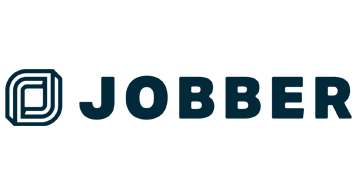What is Field Service Management Software?
Field service management (FSM) software is an employee management tool that’s used by businesses to manage field service operations. It enables teams to efficiently schedule and dispatch work orders to the right technicians, optimize routes, and track performance in real-time.
FSM software solutions are designed for organizations that need to plan and route jobs for mobile employees based on skill sets, availability, and location. They provide customer self-service portals, automated scheduling and dispatching, customer notification capabilities, inventory management tools and more.
Companies use FSM software solutions to enhance operational productivity by managing their field technicians’ daily activities. These solutions also help lower operating costs by reducing the time spent creating schedules and dispatching technicians.
Businesses of all sizes around the world use FSM software solutions. They are particularly common among field service businesses such as heating, ventilation, air conditioning (HVAC) companies; plumbing companies; electrical companies and the like.
What Does Field Service Management Software Do?
Field service management software is an automation software that allows companies to manage their field service operations. It’s used by companies that provide services, such as plumbing or electricians, who need to coordinate their teams with customers.
Field service management software helps companies reduce costs and increase efficiency by automating their business processes. It also helps companies deal with customer complaints and issues in real-time.
The best field service management software will allow you to:
- Manage your work orders – Create work orders for each job, assign them to the right people and track their progress.
- Track customer satisfaction – Get feedback on how well you’re doing from your clients.
- Manage your technicians – Create profiles for each technician, set up schedules, and assign them to jobs.
- Automate billing – Automatically bill customers based on what they owe or charge them hourly.
How We Rank the Best FSM Software
We use a comprehensive evaluation methodology to identify the best FSM software solutions. Our evaluation takes into account criteria such as pricing, features, ease of use, customer support, and user reviews. We also use the Genius Score, a rating system that ranges from 0 to 100 and incorporates external reviews as well as the assessments of our internal testing team. For detailed insights into our rating methodology, visit our full rating methodology page.
Main Features of Field Service Management Software
Features are the underlying ingredients that make up the Field Service Management Software you buy. You’ll want to know what features are provided by the software you’re considering to figure out which ones will be most useful to your business. Here’s a list of some of the most common main features you should consider:
Scheduling and Dispatching
The concept of field service management is not new, but it has been transformed by technology over recent years. Field service management software can automate many routine tasks and make it easier for dispatchers to schedule work for their agents in the field. At its simplest, the software can maintain a log of all appointments and send reminders to customers when someone is on their way.
Invoicing
This feature allows the office manager to easily generate invoices for customers based on the charges associated with each job. Some programs allow for multiple payment methods, such as credit card processing or e-check processing, which can help with customer retention.
This feature may also integrate with accounting software to keep all financial information in one place. There is no need for double data entry into two separate systems.
Customer Relationship Management
A good field service management software should help businesses manage client relationships. This means that it should provide a platform where you can store customer data such as contact information, important documents, and previous purchase history.
This ensures that service agents have all the information they need when dealing with your customers. It also helps automate the sales process by allowing you to create quotes and sales orders instantly.
Benefits of Using Field Service Management Software
A field service management solution can pay for itself over time. The software brings multiple benefits to your business, including:
Increased Productivity
Field technicians need reliable information and access to it quickly. With field service software, technicians can access data from the field with their mobile devices. They have access to customer profiles with detailed histories of previous services or repairs and contact information for customers. Also, they can get real-time updates on weather conditions, traffic, and other factors that influence the delivery of services.
Customer Satisfaction
The customer satisfaction process is the most important aspect of any field service business. If your customers are unhappy with your service, you will lose them and potentially get bad reviews; however if they are happy the result will be the opposite.
To keep customers happy, it is essential to resolve any problems in the least possible time. This is where FSM software comes into play. It helps you manage your field operations effortlessly and improve customer satisfaction significantly.
Faster Responses
If a customer calls to request an appointment, they want to know when someone will come out as soon as possible. When you use field service management software, you can see how busy each technician is and schedule accordingly. You’ll be able to give your customers accurate estimates for when their appointment will happen, which makes them feel valued and respected.
Who Should Use Field Service Management Software?
Companies that use field service management software are often in the business of providing services in the field. This may include delivery, installation, repair, and maintenance services. It can be difficult for companies that rely on off-site technicians to keep track of their schedules and maintain adequate inventory levels for repair parts. Field service management software helps them overcome these challenges.
Businesses that send technicians into customers’ homes or offices to perform on-site services should consider buying field service management software. These businesses include:
- Appliance repair companies
- HVAC companies
- Computer repair firms
- IT support providers
- Plumbing companies
- Landscaping services
- Door and window contractors
- Moving companies
How Much Does Field Service Management Software Cost?
The cost of FSM software can vary widely, depending on the features offered and the volume of users. The typical range for a small business is $10 to $50 per user per month, plus a one-time setup fee between $500 and $1,000. Enterprise-level field service management software may run into thousands of dollars per month.
Per-User, Per Month Pricing Model
Many companies offer per user, per month pricing plans. This is often convenient if you plan to use the software for only a short period or have only a few employees who will use it.
Volume Based Pricing Model
Some companies charge based on how many users are in your company or what kind of software package you purchase (e.g., Basic vs. Advanced). This model typically works best if you have many employees who all need access to field service management software at once.
Author
Methodology
- Who? We are SaaS experts: Our specialists constantly seek the most relevant information to help support your SaaS business.
- Why? We are passionate about users accessing fair SaaS pricing: We offer up-to-date pricing data, reviews, new tools, blogs and research to help you make informed SaaS pricing decisions.
- How? With accurate information: Our website manager tests each software to add a Genius Score using our rating methodology to each product. Our editorial team fact-check every piece of content we publish, and we use first-hand testing, value metrics and leading market data.



